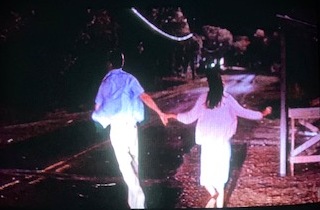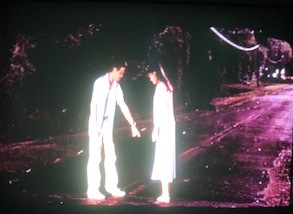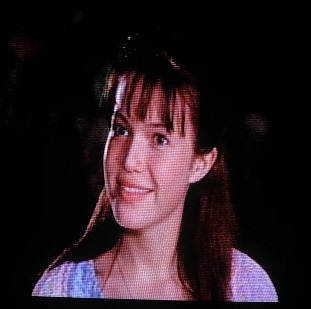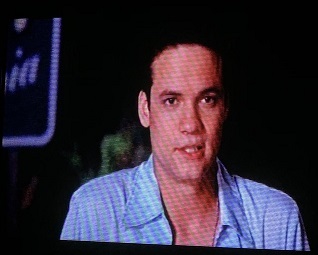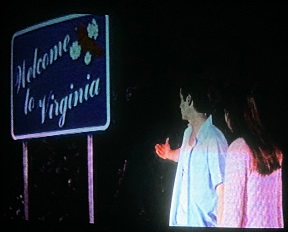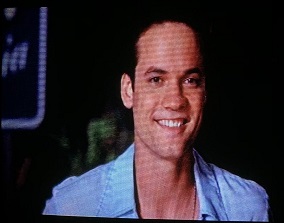|
home | what's new | other sites | contact | about |
|||||||||
|
Word Gems exploring self-realization, sacred personhood, and full humanity
Verse Three Believing in Something Never Seen Before
©1971 Public Domain Foundation I am now to be among you at the calling of your hearts A man shall leave his mother and a woman leave her home Well then what’s to be the reason for becoming man and wife? Oh the marriage of your spirits here has caused Me to remain
what’s to be the reason for becoming man and wife? – a second question is asked I see two primary questions addressed in The Wedding Song. The first, an implied question, is “the calling of your hearts.” It’s the main But, nothing or no one can “make” us happy. Our joy is within. It's part But the second major question in The Wedding Song is really a subset of Well, we’ve already heard John and Mary’s reasons, and we won’t list
who’s the giving for? – understanding this section The Wedding Song offers many words and phrases hard to understand. Let’s keep in mind that any precept of the third verse needs to find some To help us prepare for the insights of verse three, let us briefly list major The message of Love Personified is so different from common Life and love are related in a matrix of growing human awareness The sweet clashing interplay of Twin Souls draws the “life” of This “life” is part of God’s own essence; The destiny of Twins is to “travel on” toward greater perceptions
Well then With a measure of confidence, we presume, especially in a poem of “Well then” is another way of saying, “In view of all that we’ve come to
who’s the giving for? – searching for solid footing Where to begin in this collection of ambiguous phrases? Can we find anything here that’s solid and clearly understood, allowing us to safely plant one foot? To my way of thinking, it seems that “who’s the giving for?” provides our best starting point. Even so, this phrase, too, is very tricky. We’ll have to talk this out and move forward slowly. Editor’s note: Why would Love Personified go to all the trouble of If you’re a student of the New Testament, you may have noticed that Jesus never gave a straight answer to anyone. In his “parables,” he’d always teach with zen-like impenetrableness. In my Word Gems articles I address this studied confusion and speak of the “mashal” principle used in the Hebrew scripture. It’s all very interesting, and you’ll want to get the full story, but allow me to offer a few words here. There was a humorous incident the night before Jesus died. After making a statement to his men, Jesus received the comment “So, you think you understand? You think you’ve got me The Wedding Song is written in “mashal” format. It’s often
Kairissi. There’s a song lyric, “love changes Elenchus. How I might “live and die” becomes a function of K. (silence) E. But if, despite these sorrows, somehow I managed K. This reminds me of what Dr. Victor Frankl E. I believe that what Frankl did during those years K. (silence) E. And in that life bereft of your presence, I would also K. (silence) E. I would see no purpose in unduly extending my K. (silence) Editor’s note: Twins will wait for each other because their “We have met our match, someone who won’t let us “A struggle for the liberation of the soul” – what a profound K. Wow! “A struggle for the liberation of the E. As opposed to what Elizabeth Barrett said to Robert, I do K. Yes, exactly so: I do not want anything from you but you E. This is what we saw in John Sebastian’s “Darling” song. He K. And I’ll tell you what else this reminds me of. It’s like the old E. Some of that was a little too predictable in the old movies. K. While it may have been overdone, it was predictable
who’s the giving for? – a disconcerting question “Giving” is often associated with charitable works. That sort of giving As this is often the case, I don’t think we’re looking at “giving” in terms I see two kinds of “giving and receiving.” The first kind takes us back to verse two with the interplay of Twins, But there’s another kind of “giving and receiving,” not of Twins but the
Is it love that brings you here or love that brings you life? – testing Let’s take a step back now to see if this analysis gets us anywhere with Love Personified has asked a question: “what’s to be the reason for becoming man and wife?” She then offers two possible reasons for marriage: (1) love that brings you here, or (2) love that brings you life.
brings … brings – an alternate word for “receiving” We see that “loving” is associated with “giving” in the line, “if loving is In the statement “Is it love that brings you here or love that brings you This becomes a very significant item to our decrypting efforts. “Bringing” We now enjoy just a little more sure-footing for us to proceed.
Elenchus. In his discussions of energy fields, Dr. Rupert Kairissi. That is very interesting, Ellus – this might indicate E. I think this is an important concept, and a true one. K. If this idea is correct, then the Twins’ “force field,” each
Is it love that brings you here or love that brings you life? – two ways of giving and receiving Love Personified suggests two reasons for marriage: (1) love that brings As we’ve seen or suggested, as per the text, both Twins and John and Mary engage in giving and receiving; but the similarity ends with the statement.
love that brings you life – an answer to the question Because the song is written so cryptically and poetically, it will not be readily apparent that the “love that brings you life” is the answer to the question “what’s to be the reason for becoming man and wife?” Unless we are able to answer this question, and secure for ourselves the promised “love that brings you life,” we will not be able to endure the terror of living forever.
love that brings you life – the purpose of marriage, according to Heaven’s testimony Let’s quickly get to the bottom-line here, and then we’ll discuss how To the surprise of many, The Wedding Song does not say that the purpose of marriage is to share love, or learn about love, or grow in love. Love is not the problem. There’s plenty of love “down below” in the soul. Our problem is coming alive and entering awareness. Once we do that, we’ll discover that the love was already waiting for us deep within. It’s always been there as part of the "inner riches." Genesis 2:24 suggests that the entire creation came into being that we But let’s adopt a wider view now. We need to understand that acquiring Let’s give ourselves a little more sure-footing in this decryption process.
Is it love that brings you here – “make me happy” But let us talk more about option (1) as a reason for marriage - "love I think option (1) might be paraphrased a little more conversationally: “Is Consider again the example of Twins in verse two, also engaged in “giving But it’s different with John and Mary. They’re not yet aware of the “life” In a perceived world of lack and shortage, the “giving and receiving” Recall their wedding day soliloquies. They knew what they were bargaining for: “I’ll give you this in exchange for that.” We often hear of the “50-50 marriage,” that, "success in marriage is linked to the art of compromise" - and this is presented to us as highest wisdom; in fact, it’s nothing more than an arid and desiccated poverty. In the eternal marriage of Twins, each mate, in a self-sacrificial way, gives 100% and always seeks the highest and best for the other, even if it means suffering for the Beloved. At its most fundamental level, this is usually not John and Mary’s view. Each stakes a claim to what is personally most important, and negotiates for it in a “giving and receiving” bargaining process of "make me happy," the non-receipt of which becomes the death of the engagement or the marriage. Twins don’t think that way because they’re plugged into a higher level of consciousness. They don’t negotiate for the “best resume” they can get. When sacred recognition comes, they “take what they get,” “play the hand that’s dealt” - willingly and with joy – as, to their shock, what they “get” is exactly what they always wanted in a lover. Editor’s note: Decryption of The Wedding Song’s runic poetry will involve comparing parallel structures of thought. The song centers upon, revolves about, certain key phrases, for example, “giving and receiving,” which, for Twins, in verse two, sometimes becomes “sacred combat” in their quest to help each other become more alive and sentient. Correspondingly, this “giving and receiving” engaged in by Twins is answered by a dysfunctional counterpart in verse three, the egoic bargaining and negotiating of “make me happy,” entered into by John and Mary – they also engage in “combat,” but not the sacred kind, but only giving-to-get. In these parallel structures of thought, we’re looking at pure “mashal” teaching style. (See the discussion above.) “Mashal,” which, in the Hebrew, means “to compare,” is designed to promote not just knowledge but understanding and insight. It does this by offering partial answers and then requiring a reader to “fill in the blanks” by means of comparison and inference, the fruit of one’s meditation. According to "mashal" interpretation, if "love that brings you here" means "it's your job to make me happy," then "love that brings you life" will mean "I want to make you happy." This contrast offers a very good short-and-pithy difference between John-and-Mary love versus that of Twins. This latter, issuing from lovers actively expressing their "made in the image" status, becomes microcosm of the very mind of God which ever seeks to make us happy. "Mashal," as I suddenly realize, is a literary form which might describe the entirety of planet Earth's "classroom," a system of dualism which this world is famous for, the never-ending clashing opposites designed to stir us to sentience. (See Silver Birch's comment below snd also here.)
Elenchus. One of the greatest mysteries of Twin love Kairissi. This reminds me of the ancient Greek myth of E. John-as-Pygmalion has crafted a mental image of the K. This is why, as Krishnamurti says, John and Mary never really meet E. Pygmalion got it wrong. We don’t even really know what K. When she comes, he realizes that she represents
In Twin love, there is no bargaining, and there is no “hunting for the perfect resume.” E-harmony compatibility match-ups mean nothing to them: each to the other is a Twin Soul, not a Twin Personality. The problem with “hunting for the perfect resume” is well expressed by Jamie Sullivan to Landon Carter: “You don’t know what you want!” The great psychologist Abraham Maslow agreed: “It isn’t normal to know what we want. It is a rare and difficult psychological achievement.” Editor’s note: When that paradigm-shattering moment arrives, the “Please don’t pretend that you know me!” “I know everything Famous last words by Landon.
Elenchus. I admire Jamie Sullivan. Kairissi. What do you like about her? E. She’s a symbol of high moral character and excellent spirit. K. I like her, too. She’s principled and virtuous. She wants to E. There’s something really attractive about a very smart girl. K. Not all boys think that way. Most of them are threatened E. Jamie is perfect, except for one thing: she doesn’t know the K. That just means that she hasn’t yet discovered the “one E. Yes, she’s confused about externals versus the “deep inside.” K. Landon is quite a contrast. E. He was very materialistic and thoroughly run by the dysfunctional K. The deader they are, the harder they fall. E. There’s a fair bit of truth to that, actually. K. It’s very strange. Jamie, in her obsession with externals, in E. Landon called her out on this with "sacred combat." “You’re hiding from me and hiding from yourself!" he said. "You’re hiding behind your church and your holy book!” And then she caved, and admitted she was in love with him, too. K. (softly) The deader they are, the harder they fall. E. And if your future eternal lover falls for you in the forest, but you're not there to hear the crash, did he make a sound? K. (small smile) E. Landon redeemed himself in many ways, and I like their K. (silence) E. On the certificate, I had them write, “Dear Kairissi, it may K. (sighing) When will you give this to me? E. I’m waiting for the right time. I’ll know when it comes.
E. Sometimes I despair that we will ever be together. K. Why is that? E. You’ve been so erratic over the years; I never know which one of you will show up next. And you’ve been vicious to me. K. (silence) she's not desperate to be with just anyone, to feel good about herself by being 'accepted' and 'chosen' E. I like a girl with a strong personality and a strong intellect. I could never be with a girl who’s too willing to please, too compliant so as to be "accepted." As the mystic teachers, and Heloise, too, have said, this can easily devolve into a form of legalized prostitution, with a notarized document now granting state-sanctioned license. That's disgusting. Instead, I want a girl who lives “in the presence of God,” a girl who will wait for God's timing, who senses that what she is and does fits into a cosmic tapestry of meaning and purpose.
K. (softly) Am I not like that? E. There’ve been too many examples to the contrary. I don't know who you are anymore, and I can't stand the viciousness. I wish I could be with a girl like Jamie Sullivan. She’s a little too religious right now, but that wouldn't bother me - because she’s willing to learn, is highly principled and of excellent spirit, respects knowledge, wants to be in love and offer the best to her mate. Her doctrinarism would soon evolve into a mature spirituality. K. (silence) E. She’s a strong mind and a strong personality -- I really like that -- and, if necessary, is willing to stand up to anyone to defend core principles. And she's a thinker, strives for the brass-ring in all things, is not a "good little girl" true-believer, not a fearful and guilt-ridden follower, blindly taking orders, and abuse, from Dear Mother Cult.
E. I need to be with a girl who sees what I see, wants what I want. We have to agree on how to live life, on what’s important. I’m interested in being a “laborer in God’s harvest field.” Call it missionary work; the way I see it, "missionary" in the sense of a military person who is always on duty, ready to be sent on special missions as need arises in God's "harvest field." It will take a special kind of girl to be with a guy like me, she'll have to be as crazy. This doesn't mean that we won't have our own house or farm, family and children, and every other good thing, but she'll have to want to live a life devoted to service. I want to help others find the true self, to activate the inner life, to enter authentic spirituality. I want to help the "insane" materialistically-minded in Summerland and also the hopeless languishing in the Dark Realms. And I need to be with a selfless and good girl, like Jamie, for whom this kind of life of service is uppermost. During my growing-up years and later, I was around, and persecuted by, a lot of relatives who were cynical and disdaining toward God. They’d been perverted with an arrogance encouraged by Big Religion, which taught that a “magic hand-sign” could absolve any crime. I want none of that venal haughtiness ever again, and I will devote my eternal energies to bringing down that edifice of evil; if necessary, I will apply myself to this task for thousands of years; there will be no compromise. I need to be with a girl like Jamie who also desires to serve God as a life-mission and calling. I need her creative and resourceful mind to work on all this with me, not as an assistant or a water-carrier but as a full and equal partner; and, where her talents are better than mine, I will expect her to lead the parade. She needs to be unremittingly dangerous, a relentless force, just like me. To my way of thinking, all this is non-negotiable; and so it's vitally important for two to agree from the beginning. her whole life as a sacrament E. And what I like most about a Jamie-girl is that, despite her competence and high IQ, she’s always kind to others, respectful and sensitive, never rude, never proud, even to her enemies, even when they might not deserve charitable consideration. And I really like how she lives her life trying to please God, trying to determine what God would think about a certain course of action. She is a girl "under cosmic authority" and strives to live her whole life as a sacrament. This makes her incredibly dignified, worthy, and supremely attractive; and well deserving -- as men truly in love are wont to do -- of being "worshipped and adored." K. (softly) I think you're angry, Elenchus. E. And I'm debating whether to stay this way. I speak as a fool right now, but we live in a society hell-bent on promoting - self-righteously promoting, with a mask of piety - every sort of heinous vice: the killing of babies, the sex-trafficking even of children, the Orwellian perversion of language with common terms redefined as their opposite, the oppression of the weak and the trampling of human rights, drug dealing, bribery, and fake-news propaganda, the constant lying and posturing before cameras, the merchandizing of the disadvantaged, and endless other examples. I will consecrate my life to ending atrocities. And I need to be with a Jamie-girl who wants the same.
Do you believe in something that you’ve never seen before? One of these two options, one of these definitions of love and reason for Obviously, this cannot refer to John and Mary’s “giving and receiving” as everyone is well familiar with their disappointing process of finding a mate.
And if loving is the answer, then who’s the giving for? We can feel it. We’re within striking distance now of meaningful interpretation of The Wedding Song. But, what does this phrase signify – “who’s the giving for?” Let’s remind ourselves that “giving” here, as per "mashal" interpretation, seems to indicate “giving and receiving”; that is, a process of bargaining and negotiating. With this in mind, along with the philosophical context already established in the previous two verses, we can modify “who’s the giving for?” and make it more descriptive and conversational. “Who’s the giving for?” is a short-hand way of saying: “Who really benefits by all of the giving and receiving, the bargaining and negotiating of John and Mary? - this 'buying and selling' process of 'make me happy.' Does anyone come out a winner on that kind of quid pro quo, 50-50 giving-to-get exchange? It is somewhat universally known and accepted, common street-wisdom, considered to be normal, that those looking for a mate will ‘put their best foot forward’ and essentially ‘play a role’ and do not truly represent themselves as they really are. This kind of ‘sweet deception’ of hearts-and-flowers is actually a fraudulent way of bargaining. The other party doesn’t know what he or she is getting. A more true picture comes clear, however, as expressed in another proverb, ‘when the honeymoon is over.’ Yes, ‘who’s the giving for?’ Who really benefits by this de facto disingenuity? In the history of the world has anyone ever found a true mate, true and permanent love, the true marriage, by this kind of self-seeking and fraudulent ‘giving and receiving’?” Love Personified, all the way back in verse one, has already made it clear
And if loving is the answer, then who’s the giving for? As we’ve come to see, strictly speaking, “loving is not the answer.” Finding love is not the main problem. Of course, “loving” is what we’re all With this principle in mind, we will see that the phrase “if loving is the And with this plain-spoken modification, we notice how easily we then flow to “then who’s the giving for?” Let’s put this together, an expanded paraphrase: “If seeking for love in marriage, a negotiating to ‘make me happy,’ is the answer (to the question of ‘what is the reason for becoming All this acknowledged, then, let us not act surprised to learn that True Love, in this difficult world, is “something never been seen before.”
Do you believe in something that you’ve never seen before? Dr. Federico Faggin invented the first computer silicon chip, plus many other tech wonders. Today he’s a leading spokesman in the new study of consciousness. See him featured on the “quantum” page. In classical or Newtonian systems, he’s stated, things are made of separable parts. Assembled parts can never be more than the sum of the parts (and often less due to entropy). Quantum systems, however, are holistic, consist of interconnected, inseparable parts. And when quantum fields combine the result is more than the sum of the parts. For example, when quantum fields of electrons combine with quantum fields of protons the result is a hydrogen atom, which is “something never seen before.” The new atom has characteristics superseding that of an electron and a proton, that is, it is more than the sum of its parts. The “One Person” status of Twins represents an evolvement which is more, far more, than the sum of the female and male constituent elements. Together, they become something never seen before in the universe. The underlying quantum fields of Twins secret a vast cache of unexpressed, potential talent and ability, which derives from the essence of Mother-Father God.
Do you believe in something that you’ve never seen before? “Who’s the giving for?” leads us to a troubled answer, what Ann Landers Editor’s note: Some will still wish to defend John and Mary. But I Living without true love, that “mad love” for which one was created, Without love, a day will come when we’ll ask ourselves, “Why should I continue to go on living without someone to truly love?” -- and we won’t be able to come up with a good answer. It's “Adam’s death-trance” writ large. It's the doorway to the deepest kind of insanity. Not only will there “be no happy heaven” for those insisting upon this egoic way, but there will be no energy to live life at all, only a seeking for respite in death. In the "500 testimonies" article we find a large group of people on the other side who have drifted into forms of insanity because they have not prepared their hearts for the true love. Eternal life without love, true love, didn’t you know, is just another word for “hell.” The wisest Spirit Guides are well aware of this greatest of existential calamities.
Editor's note: See this channeled information from the other side (reprinted from the WG homepage). it is the darling companionship "resting in God"; the Gospel of Thomas speaks of "rest", the end of strivings for satisfaction, to fill the existential void; the mystic Carlyle Petersilea expressed the same concerning the sacred beloved: “It was the first time in my life that a sense of home and complete rest had filled my soul… Obey me implicitly in one thing. Do not marry for any consideration [of status, comfort, or physical beauty]; if you do, bitter woe will be your portion, and a lifelong misery on earth; every morning you will desire death, and every night your pillow will be wet with tears… [why will you curse yourself thus?] wait for the counterpart of your own soul.”
‘love that brings you life’ and ’something never seen before’ These two phrases are meant to amplify each other. The ‘love that brings you life’ is ‘something never seen before’ in this world.
E. The topic of Christmas reminds me of something that happened when we were apart. K. Please tell me. E. I had a friend, and, in the course of speaking with him over a period of time, I told him about you. K. (silence) E. I didn’t say a lot, but I guess I just wanted somebody to know. Later, as we were talking, he made a comment about you. I still recall this incident. When he spoke your name, I inwardly resolved not to show any reaction. Right away I put on my “stone face” so as not to reveal any emotion. K. And what happened then? E. It was very disconcerting to me. Even though I was trying my hardest to display an outward nonchalance, immediately he said, “Elenchus lights up at the mention of her name.” K. (smiling) E. I mean, I was actually trying hard to not show any feelings, and he just read me like a flashing neon sign. K. Darling Dear… you couldn’t hide the “Christmas tree lights” in your eyes.
Do you believe in something that you’ve never seen before? Some people, in this world and also in the next, think that mortal humans I don’t think so. We come to here to wake up, to “eat the fruit of Good and Evil.” Silver Birch: “It is through shadow and darkness that you If we, here on Earth, could “smell the roses” only, but not the “stench in
the divinely appointed mechanism “Probably the explanation of the perpetually recurring vexations, disappointments, and misfortunes are that these are the divinely appointed mechanism to develop the higher qualities. How does one acquire patience, serenity, generosity, save through their exercise in meeting trials and sorrows? These obstacles are as essential to spiritual development as the practice of the scales to the development of the skill of the pianist... defeat and disaster are as valuable in relation to the wholeness of life as are triumph and prosperity." Lilian Whiting, “The World Beautiful”
Recall the instruction of Genesis 2: “It is not good for The Adam to remain This is a world of dualistic interplay. John and Mary, as children of this Love Personified made a special trip from Heaven just to tell us this.
Do you believe in something that you've never seen before? The Troubadour Spirit-Guides are not the only “brotherhood”-group who tantalize with unknown pleasures-to-come. Other “non-romantic” philosophically-based Guides have their own version of this and speak of ascending, beyond Summerland, to higher and better realms, places where the “grass is greener,” the color of flowers more vibrant, the light more dazzling. Summerland is wonderful, but these other “upscale real-estate” worlds, we’re told, defy verbal description. It's something we've never seen before, and we need not doubt that such planes exist, as confirming reports abound. What are we to make of this alternate “something you’ve never seen before”? After reviewing this issue for many years, allow me to offer my sense of what’s happening here. I’ll begin with the conclusion: The “non-romantic” Guides have not yet experienced the joy of the “union of spirits” with a Sacred Beloved and, as such, believe that the heights of social concourse and human relationship will be found outside the sanctified Twin-marriage union. For example, I am thinking of a particular report from travelers, some of whom live in Summerland and also on planes of existence just beyond Summerland. These were granted “visiting rights” to spend a short time on one of the distant transcendental worlds. In their report of the “Disneyland” wonder and marvel witnessed, they attempted to explain their findings by way of metaphor, to the effect: “Everyone we met was so loving, and it was so wonderful being with people so advanced, so cultured and refined and gracious. The feeling of ‘family’ and camaraderie was very pleasant and convivial – like a warm blanket, or a hot water-bottle on a cold night, or a glass of warm milk when you’re chilled. It was all so uplifting, more than words can convey.” Well, it does sound great, and far beyond what we on the Earth must continue to deal with, “one damn thing after another,” as Churchill said. But is this the very pinnacle of joy? Is this the highest pleasure that Heaven has to offer? I couldn’t help but feel that there’s something wrong with this picture. When they started talking about “warm blankets” and “hot water-bottles,” my innate impoliteness sprang into action with, “Is this the best metaphor of joy and pleasure you can come up with? Have you never experienced the joy of true love? – and I’m not just talking about the pleasures of the body. What kind of Victorian prudery and skewed sense of morality are we dealing with here?” Speeches about the adequacy of warm blankets, hot water-bottles, and warm milk on cold nights, should remind us of Mary’s soliloquy on her wedding day; a self-administered soothing bromide that didn’t convince her, either. Nor did it cut much ice with Troubadour Spirit-Guide Margaret, always the prosecuting attorney for sacred romantic love, when she punched and jabbed with, “Is the maternal” love – or the philial – “greater than the conjugal”? No one who’s ever been authentically in love would ever believe in the supremacy of warm blankets and warm glasses of milk. Go knock yourself out with your hot water-bottle. Let me tell you how this works. When you cross over, for better or worse, according to the principle of “like attracts like,” you will be with people who think just the way you do. And if you believe that the best life has to offer is a “warm glass of milk” and “better curb-appeal real estate,” then that’s what you’ll get. But, that’s all you’ll get. There are lots of people over there who believe in this kind of "ultimate reality." And if you hang around them, you'll hear about this "version" of high heaven. Immersed in that culture, it will all seem quite normal, very "status quo," and "we shouldn't expect more." Everyone in this "hot water-bottle" world will applaud these ideas of "happiness" and assure you that this is the way it is. Little do they know that Love Personified, in the phrase "something never seen before," was speaking to them, too, not just to those on the Earth. It's been said that people go mad in herds but recover sanity only one person at a time. Keep your wits about you, even on the other side. How shall one recover him or herself? Each human being, buried deep within the soul, has a “homing device” that might lead one into the truth. We must center ourselves and receive the inner guidance; but, caught in the group-paradigm, it's easy to slip away from being “present” to one’s “true self.” The Wedding Song’s assertion, “something you’ve never seen before,” does not primarily refer to upgraded real estate with “greener grass” nor even to enhanced brotherhood-sisterhood affections. All these truly are wonderful, and there will be plenty of it in due course, but, without something more, something more fundamental to what it means to be human – “made in the image, male and female” – there will be no ultimate satisfaction or solace in prettier flowers or friendlier neighborhoods. Indulge me, if you will, that I might comment further on this notion of spiritual advancement as necessarily associated with migrating higher and higher to so-called better and better worlds. This reminds me of the “yuppies” of the 1980s, “young upwardly-mobile professionals,” those who made art-form of incessantly seeking for a larger BMW, a bigger mansion, a more lucrative power-employment position. Granted, on the “higher levels,” the flowers may very well be prettier, but, it seems to me, well-manicured parks are nice places to visit, but that doesn’t mean I’d necessarily want to move in. Here’s the bottom-line, coming again from clear-sighted Troubadour Spirit-Guide Margaret: those who have found the real romantic love are already in Heaven! Allow me to translate: It doesn’t get any better than this, anywhere in the universe, or on any plane of existence! The beauty you see in your lover’s eyes is your “stargate” entrance to the inner cosmos, to your own discovery of God. This is “God-immanent,” the only access you’ll ever have to “God-transcendent.” And this is what's truly important. The “non-romantic” Spirit-Guides run in holy horror from this blasphemy, this view of life – but that’s just another way of saying that the real love, for them, is “something never seen before.” And yet they will cling to and defend their “hot water-bottle” love. Summerland is far more beautiful than the Earth, but, it’s probably true, there are even nicer garden-paradises. That’s fine, and I’d like to see them. But I also know, as we learn from Father Benson’s reports, that some of the citizens of Summerland have lived there a very long time, serving among the less-developed, even though they’ve fitted themselves for "higher" realms. They didn't feel the need to become "spirit-yuppies." I like that. To my way of thinking, I’d like to “put down roots” in Summerland, on my little farm, near a university, with no need to think about becoming a “spirit-yuppie.” What’s the point? I can visit wherever I choose to go, be there in a heartbeat. I can explore any far-flung port in the universe. I can see all that I want to see, and adventure anywhere. But, when my “super-hero” exploits and service-projects are done for the day, I can return to the quiet oasis of my farm, to my family, close relatives, and friends; my horses, dogs, cats, and a few cows. See much more discussion in “the 500 tape-recorded messages from the other side.”
The idea that I have to “move upward,” pull up stakes, in order to find happiness is just one more propaganda ploy of the never-satisfied small-ego. I will have all that I will ever want and need, right there, where I am. Editor’s note: “Higher and better worlds” in the afterlife literature is referred to as the “7 levels” or “7 dimensions” of spiritual advancement. Among the afterlife reporters, including the Spirit Guides, not all agree concerning the nature of these planes of evolvement. There is talk of much overlapping of these levels, with no clear demarcation; and yet, some division between these worlds does seem to exist as it’s clear that people over there do leave one world for another. While one’s “passport,” or right to live in a particular world, is based upon one’s essential vibrational-frequency, and since, for example, in Summerland, we will find a “one-room schoolhouse” of varied vibrational-frequencies, these energy-patterns will fall within a certain range of acceptability, allowing one to take up residence in Summerland; then, as one’s energy-pattern increases vibrationally, as one moves into a higher “range,” one will then be suited for another plane of existence. All this is basic “afterlife physics.” However, this objectivity will be injected with a personal factor which can radically alter things. We know, it's well substantiated, that on the other side, especially in worlds beyond Summerland, we take on an ability to create environment with our minds. The very power of thought brings things into being. I discussed this at length in the article on “the holodeck worlds.” This means, at least in part, possibly the main part, that the “higher dimensions and better worlds,” to which one might migrate, are created by ourselves. In other words, the “higher and better worlds” are not altogether something objective, like planning a trip to Florida or the Caymans, where everyone might experience the same things in pretty much the same way; it’s not like everyone enjoying the same rides and exhibits at Disneyworld. These are custom-crafted worlds, infinite in number, variety, and purpose, designed to fulfill personal and subjective definitions of happiness. In the "holodeck" writing I offered this quote from someone on the other side: "The spheres [worlds]! No tongue can describe them. There are thousands... millions... countless in number... all rounded into complete worlds, and all the habitations of those who cherish the special idea which rules the sphere... There are spheres of every mental light, thought, and knowledge; spheres of special grades of intellect and wisdom. In all and each [person] is a special need of happiness... There are spheres of love, where tender natures cling to one another until they are drawn by higher, broader aspirations to broader planes of thought..." No mention of, and no need for, "hot water-bottles" when lovers can "cling" to each other in these numberless and infinite worlds of personal happiness. I think that the report of “7 levels” is not to be taken literally. It’s like the use of “7” in the Book of Revelation, wherein “7” is used 50+ times: 7 angels, 7 woes, 7 churches, 7 plagues, 7 vials, 7 beast-revivals, on and on. “7,” since ancient times, has often been used as a symbolical number indicating “fullness and completeness,” and I think we’re looking at a similar usage with “7 levels” of spiritual advancement. I think there’re an infinite number of “levels” to come because our human capacity for growth is infinite – “no upward limit” as Father Benson said. But here’s a major point I’d like to make concerning all this. As I indicated above, not everyone on a so-called “higher level” seems to be uniformly advanced in all aspects of spirituality. Some “advanced” beings still believe in a not-so advanced “hot water-bottle” definition of human love. And if we insist on these prudish ideas, though we might become service-oriented and altruistic to a degree, our vision will lack clarity, we'll end up diminishing human dignity, and we will create for ourselves an alternate, neighborly but somewhat sterile, "higher" plane, the kind Troubadour Spirit-Guides do not necessarily visit; except, possibly, for missionary-outreach efforts. I have read reports of some of these skewed, alternate "higher" levels, and I will tell you this: the people who live there, though smiling a lot, sound a little nuts to me. I may be a little too judgmental regarding our friends on the "higher" levels. Their problem is that they don't believe in romantic love. They think it's all just base animal passion, something to "get over and grow out of," just the way it used to be in the checkered days down here on Earth. They don't get it, and so they think that a brotherly "have a beautiful day in the neighborhood" is all there is to look forward to.
they want more and more...
Kairissi. We’ve spoken of the possibility of Elenchus. Tell me of this. K. He’s studied telepathy in animals and presented E. If a dog can know when his mistress’s K. That thought is most compelling. Dr. Sheldrake
Summary of Verse Three
©1971 Public Domain Foundation Well then what’s to be the reason for becoming man and wife?
Love Personified asks us to take mental inventory of what we’ve learned In terms of broad outline, there are only two options, two reasons why Regarding the former, no one in the history of the world has ever been entirely satisfied with its results; concerning the latter, no one has, or shall ever be, disappointed. Love Personified leads us to a high mountain now and asks: “Can you see it? Can you begin to believe in the vision I've offered? Will you come with me now into a new world of love? – permanent, exquisite, soul-cradling love? Will you quiet your fears of ‘not having enough’ and end your fruitless bargaining to protect yourself? Will you resolve, right now, to stop ‘settling’ for second or third best? It is your heritage and destiny, the reason for which you were created by Mother-Father God, to experience the extreme delight of authentic romance. You must prepare yourself for it. You must wait for it. The waiting will not be one-sided, as there is a particular someone, 'somewhere out there,' right now, who waits for you, as well.”
|
|||||||||
|
|





